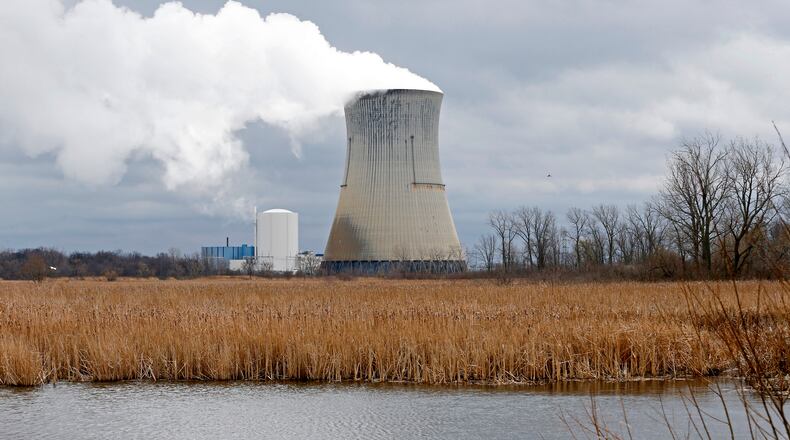“The governor asked for support for his daughter’s election sometime in, or after, September of 2019,” DeWine spokeswoman Lisa Peterson said in a written response to questions. Alice DeWine announced her run for the Republican nomination for Greene County prosecutor in August 2019 and lost the primary in April 2020.
Newly obtained IRS filings for Partners for Progress, a nonprofit funded by FirstEnergy, detail the money trail.
An 80-page criminal complaint in the Larry Householder public corruption case uses pseudonyms of “Company A” and “Energy Pass-Through” to describe FirstEnergy and Partners for Progress.
The complaint alleges that FirstEnergy was the sole funder of Partners for Progress, which in turn contributed $900,000 in 2018 and $13 million in 2019 to Generation Now, another nonprofit at the center of the corruption case.
Started in 2017, Partners for Progress is a 501(c)4 organization, which is required to publicly disclose its financials once a year in an IRS Form 990 and don’t have to disclose their funding sources.
DeWine’s chief lobbyist, Dan McCarthy, resigned as its president when McCarthy left The Success Group lobbying firm to join the governor’s administration in early January 2019. McCarthy declined to comment.
McCarthy’s former business partner at The Success Group, McKenzie Davis, replaced him on the Partners for Progress board. The Success Group has lobbied for FirstEnergy for more than a decade.
Partners for Progress released its 2019 IRS 990 form to the Dayton Daily News this week. It shows nearly $14 million in contributions to seven other 501(c)4 nonprofits:
- $13 million to Generation Now, which worked to pass House Bill 6, a controversial bailout for nuclear plants that DeWine signed into law in July 2019.
- $300,000 to Securing Ohio’s Future, which worked to drive voter turnout for the DeWine-Husted ticket in the 2018 election.
- $200,000 to Consumers Against Deceptive Fees, a group critical of Cleveland Public Power.
- $150,000 to Liberty Ohio Inc.
- $100,000 to Rebuilding America, a progressive think tank whose board includes Democrat Rhine McLin, former U.S. Rep. Baron Hill and Ron Malone, a member of the Ohio Democratic Party’s executive committee. The group recently changed its name to Modern America Project.
- $85,000 to Jobs and Progress Fund Inc., which is based in West Chester.
- $75,000 to Protecting Ohio Inc, which advocated for Alice DeWine to win the GOP primary for Greene County prosecutor this year. She lost the race.
“It is an outside group and I did not know how it was funded,” Alice DeWine said.
Mike DeWine said Securing Ohio’s Future is an independent organization, separate from his campaign.
When asked if he was aware of the Partners for Progress contributions, DeWine said: “No, I don’t know what they are doing. I didn’t know what they were doing.” He also said that contributions had no influence on his decision to sign House Bill 6 into law in July 2019.
DeWine met with FirstEnergy officials at a Republican Governors Association fundraiser held Oct. 10, 2018 at the Columbus Club, Peterson confirmed. Earlier in 2018, DeWine and Husted toured one of the nuclear power plants previously owned by FirstEnergy, she said. The RGA supported DeWine’s 2018 bid for governor.
McLin referred questions to Peter Mellinger, who is executive director of Modern America Project. Mellinger said the group’s board members are not compensated and it hasn’t received any funds from Partners for Progress in 2020.
“It’s all being shut down by the end of the year,” he said. “Modern America Project is being closed as well.”
McKenzie Davis, a FirstEnergy lobbyist and Partners for Progress director, referred questions about the group to its legal counsel, Fritz Berckmueller, who did not respond to messages seeking comment.
In July U.S. Attorney David DeVillers alleged that Householder and four associates took more than $60 million filtered through these nonprofit groups to put Householder in power and then pass and defend House Bill 6, a controversial energy bailout law.
These nonprofit groups have been part of Ohio’s political landscape for years and are becoming more common in state and local contests, experts say.
About the Author

